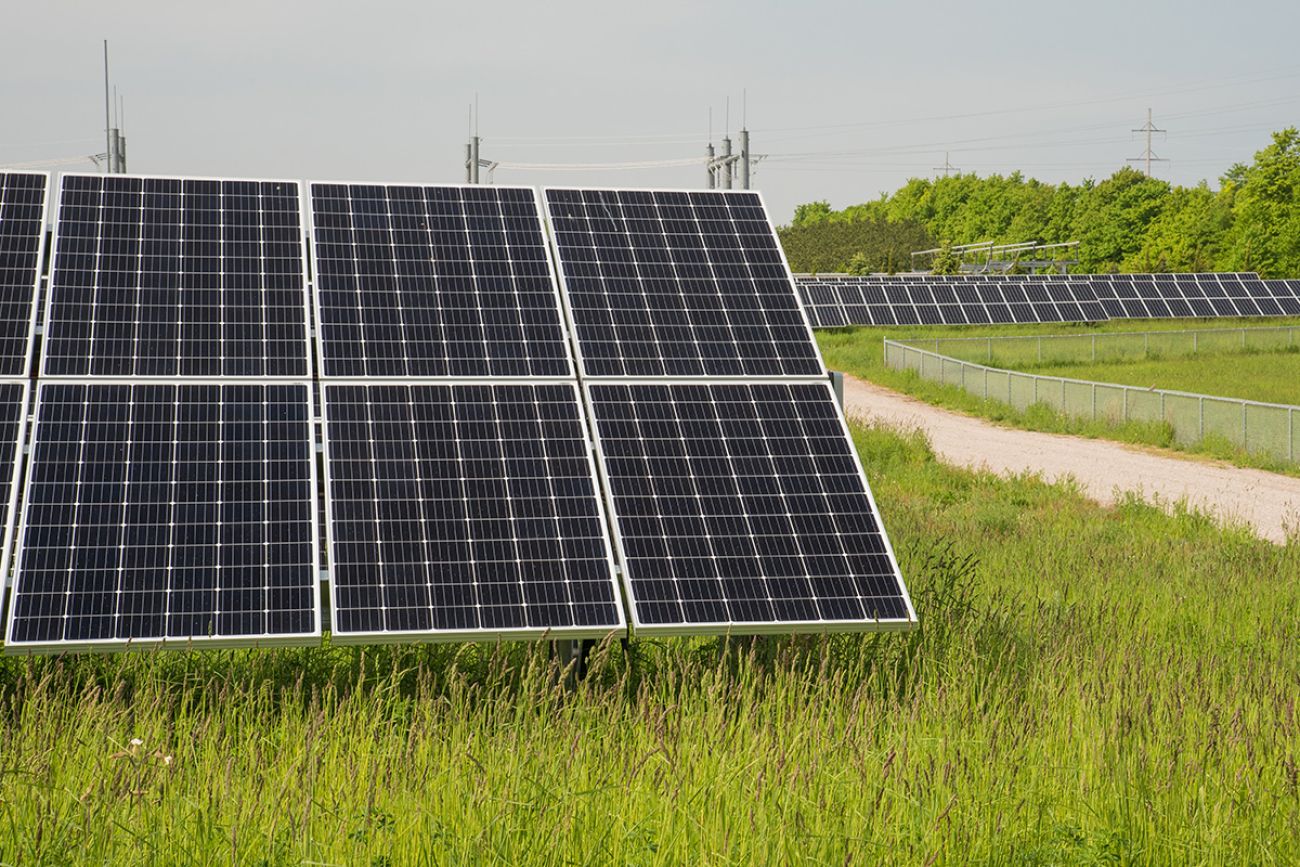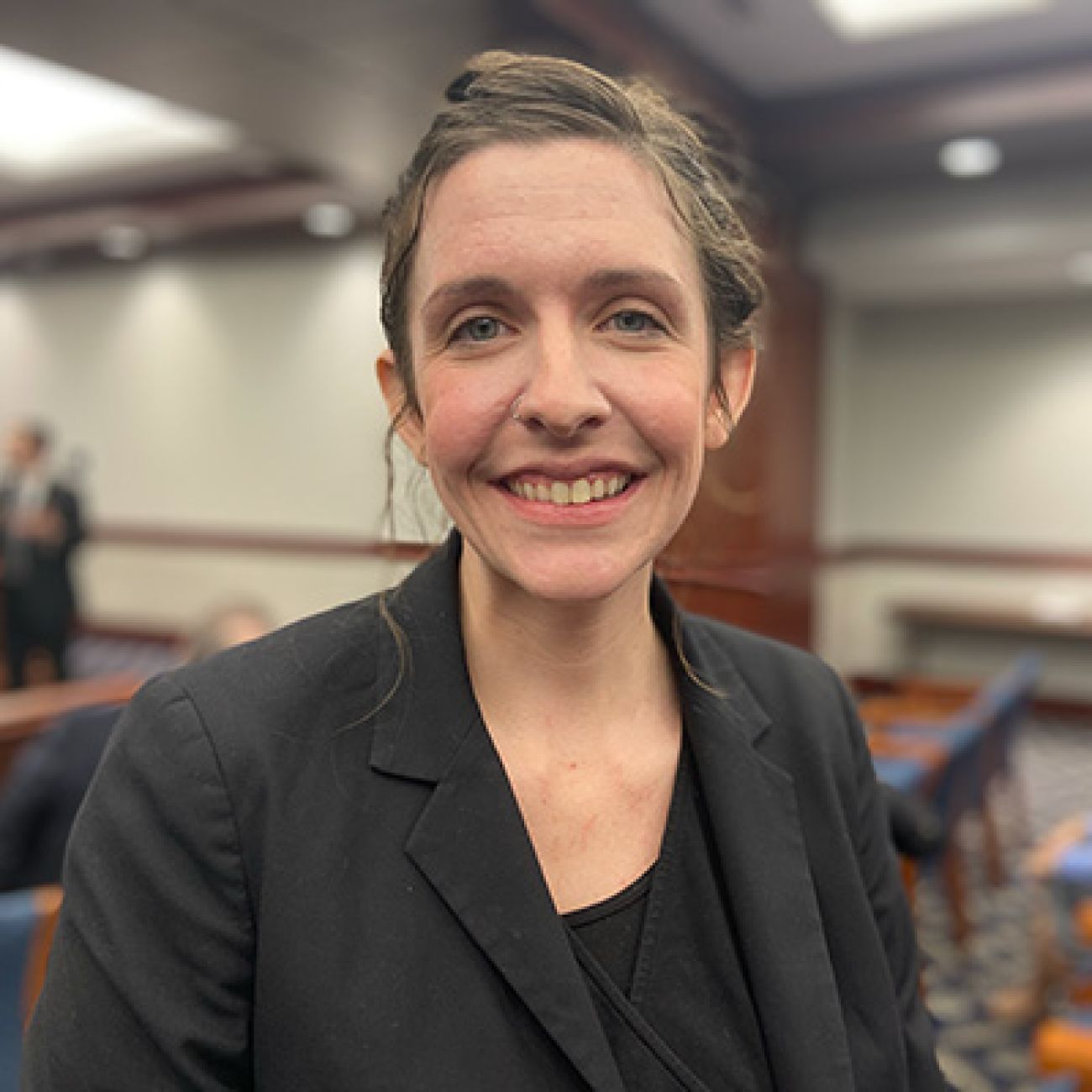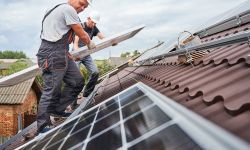Proposal to ban solar developments on farmland withdrawn amid confusion

- A Howell woman wants voters to ban 'utility-scale”'solar arrays on farmland
- For now, the petition is on hold amid uncertainty about what qualifies as 'utility-scale'
- The issue comes amid growing tension over solar panels in rural communities
A Howell-area mushroom grower wants Michigan voters to ban large-scale solar on Michigan’s farmland.
But what counts as large-scale? And what would a ban mean for farmers who already have solar panels on their land?
Those questions tripped up members of the State Board of Canvassers Friday as they considered whether to approve summary language for the proposed ballot measure.
Related:
- Michigan recycling rate ticks up, but still short of state goal
- Detroit expects more extreme heat, flooding amid climate change
- With growing backlash to wind energy, Michigan turns to solar power
“I think it definitely needs to be clear that adoption of this proposal would require the termination of all solar power operations in the state, which is a very dramatic and probably illegal action,” said board Chair Mary Ellen Gurewitz.
That prompted mushroom grower Erin Hamilton, the proposed ballot measure’s architect and founder of the group Michigan Citizens for the Protection of Farmland, to withdraw it from consideration. But Hamilton promised to come back with a new version.

“Our goal with this initiative is specifically to protect and preserve farmland for long term agricultural use,” said Hamilton, who described herself as a third-generation farmer.
The push to get the “Michigan Agricultural Land Preservation Act” on the ballot comes amid rising tensions between rural residents and electrical utilities that are seeking large tracts of land for renewable energy as they transition away from fossil fuels.
Both of the state’s largest utilities, DTE Energy and Consumers Energy, have vowed to go carbon-neutral by midcentury. They frequently lease fields from farmers to install wind and solar arrays.
Solar developers tout tax revenue for local communities and new income streams for Michigan farmers. But neighbors often object, citing fears of declining property values, loss of productive farmland, and local environmental concerns over the materials used in solar panels .
Hamilton said her push for a statewide ban was inspired by fights in her own community. In Livingston County’s Marion Township, where Hamilton lives, public officials recently revised the language of a local solar ordinance, shrinking areas allowed for solar development from thousands of acres to 170 amid opposition from farmland solar opponents including Hamilton.
The initial draft of Hamilton’s proposal would have asked voters to create a law banning installation or operation of “utility-scale solar” on land zoned for agriculture. Violating the act would come with a fine of up to $10,000 per day.
But the proposal did not clearly define “utility-scale,” and made no distinction between existing solar arrays and new developments.
Solar backers and farm advocates at Friday’s meeting railed against that lack of specificity, with one calling the petition “hopelessly vague” and “likely unconstitutional.”
Mark Brewer, an attorney representing Our Water Our Democracy, the Michigan League of Conservation Voters’ ballot committee, warned that if such a measure were to pass, farmers who already lease their land for solar would be forced to rip arrays out of the ground.
Another opponent, Brenden Miller of the Land & Liberty Coalition, claimed the petition would infringe upon farmers’ private property rights and take away a source of income “to help stabilize farms” amid economic struggles.
“Most of them use (solar leasing) as a lifeline,” said Miller, using the revenue to stay afloat during bad harvest years.
Hamilton clarified that she has no intent of punishing farmers with existing solar arrays. And she said she supports allowing landowners to install solar panels to power their homes, farms or businesses. But solar arrays that exist solely to generate power for the grid, she said, belong on industrial land.
“America has a limited amount of agricultural land available, and it's a very important resource,” she told Bridge after the meeting.
But she agreed that the petition needs to better define what counts as a utility-scale solar installation, and include some protections for existing solar installations.
“We’re not trying to create a situation where anyone’s hands are tied,” she said.
Hamilton vowed to submit a new petition next week. The board would then have 30 days to consider summary language for the ballot.
Michigan Environment Watch
Michigan Environment Watch examines how public policy, industry, and other factors interact with the state’s trove of natural resources.
- See full coverage
- Subscribe
- Share tips and questions with Bridge environment reporter Kelly House
Michigan Environment Watch is made possible by generous financial support from:
Our generous Environment Watch underwriters encourage Bridge Michigan readers to also support civic journalism by becoming Bridge members. Please consider joining today.
See what new members are saying about why they donated to Bridge Michigan:
- “In order for this information to be accurate and unbiased it must be underwritten by its readers, not by special interests.” - Larry S.
- “Not many other media sources report on the topics Bridge does.” - Susan B.
- “Your journalism is outstanding and rare these days.” - Mark S.
If you want to ensure the future of nonpartisan, nonprofit Michigan journalism, please become a member today. You, too, will be asked why you donated and maybe we'll feature your quote next time!






